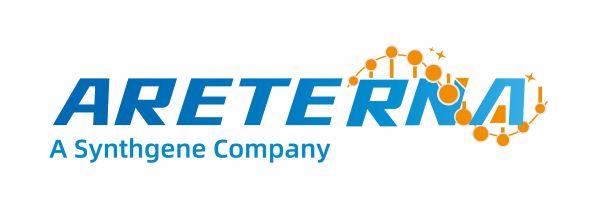In vitro transcription (IVT) remains the predominant method for large-scale mRNA synthesis due to its efficiency and scalability. However, a significant challenge associated with IVT is the residual double-stranded RNA (dsRNA) produced as a by-product. This dsRNA can activate innate immune signaling pathways through receptors like RIG-1, MDA5, and others, potentially leading to adverse immune responses. Such immunogenicity poses a critical safety concern for therapeutic and vaccine applications of mRNA technology.
The Importance of dsRNA Detection

Accurate quantification of dsRNA, regardless of the chosen detection method, ultimately relies on the reference point provided by dsRNA standards. Therefore, employing precise and dependable dsRNA standards is essential to ensure reliable quantification results.
To meet this critical need, Areterna has invested significant research and development efforts into creating high-quality dsRNA standards tailored for diverse mRNA project requirements.
dsRNA Detection Standards from Areterna
To detect how modified nucleotides influence dsRNA detection in mRNA, Areterna has developed two synthetic standards: dsRNA (UTP) and dsRNA (N1-Me-pUTP). These standards enable researchers to investigate the integrity and purity of different dsRNA configurations.

As the data shows, quantifying dsRNA content in the same mRNA samples using both dsRNA (UTP) and dsRNA (N1-Me-pUTP) standards yielded significantly different results (See Figure 3). This proves the importance of using appropriate standards specific to the modified nucleotides present in the sample.

ELISA and Western blotting were used to measure dsRNA content in the same sample. Both methods showed little difference in terms of quantitative data, demonstrating their consistency and reliability for dsRNA quantification.

Summary
Areterna offers various dsRNA standards to meet the diverse testing needs of its customers. These standards enable more accurate and precise quantification of dsRNA in mRNA samples, particularly when modified nucleotides are present. In addition, Areterna provides dsRNA detection kits using ELISA. Feel free to check it out!
Related Products
| Cat. No. | Description |
| DS0001 | dsRNA detection kit (ELISA), 96 reactions |
| 10601-50 | dsRNA(UTP), 50uL |
| 10601-100 | dsRNA(UTP), 100uL |
| 10601-500 | dsRNA(UTP), 500uL |
| 10602-50 | dsRNA(N1-Me-pUTP), 50uL |
| 10602-100 | dsRNA(N1-Me-pUTP), 100uL |
| 10602-500 | dsRNA(N1-Me-pUTP), 500uL |
| 10603-50 | dsRNA(pUTP), 50uL |
| 10603-100 | dsRNA(pUTP), 100uL |
| 10603-500 | dsRNA(pUTP), 500uL |
